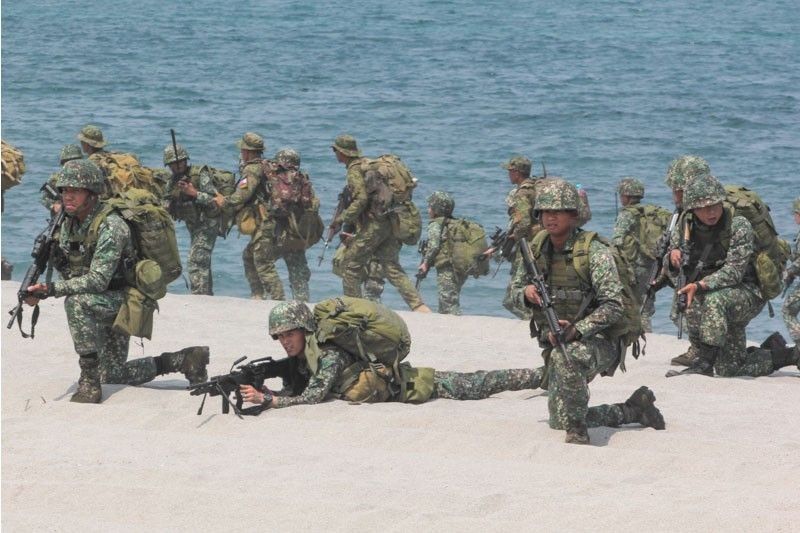Philippines-US Mutual Defense Treaty review may provoke China — expert

MANILA, Philippines — The proposed review of the provisions of the 1951 Mutual Defense Treaty (MDT) between the Philippines and the United States may push China to become more aggressive in its actions in the South China Sea, a maritime expert said.
Gregory Poling, director of Washington-based think tank Asia Maritime Transparency Initiative, said Beijing's future actions on the disputed waterway, part of which is the West Philippine Sea, would depend on the outcome of the MDT review.
Defense Secretary Delfin Lorenzana had earlier called for a review of the decades-old treaty between the Philippines and the US due to the maritime dispute in the West Philippine Sea.
"If the Americans come forward with a statement that is, I would say, insufficiently clear it might very well provoke adventurism from Beijing testing that commitment," Poling said during the "Asia Forecast 2019" forum in Washington earlier this week.
China has been encroaching on Philippine waters, constructing artificial islands and installing military facilities within the latter's exclusive economic zone. Beijing continues to ignore a July 2016 arbitral ruling that invalidated its nine-dash line claim over the South China Sea.
The Department of Defense wants Washington to give a definitive stand on whether it will support the Armed Forces of the Philippines in case of a confrontation with other South China Sea claimants.
"I think if we offer a quite clear clarification on MDT scope, it dissuades China because it lays down... red lines that make clear to Beijing where the trigger for US intervention would be," Poling added.
The AMTI director also noted that freedom of navigation operations of other countries aside from the US are also factors for China's aggression in the disputed waterway in the past year.
Poling said Beijing's response to "multilateralization" of FONOPs in the South China Sea have been "much more aggressive" and "reckless."
"We had the HMS Albion, the first British FONOP that was clearly a FONOP, we had increased activities by the French, the pace of Australian patrol even though they are not what we would call FONOPs had increased, the Japanese continued to operate so I think China feels that they win the South China Sea if they keep it as a bilateral Sino-US narrative," Poling said.
It would be harder for Beijing to win the narrative if they would go against the international community, the maritime expert added.
Noting the harassment of Chinese Coast Guard personnel on Philippine troops conducting resupply missions on Ayungin Shoal last year, Poling clarified he could not predict when an incident between the two countries would escalate.
"I don’t know if it happens tomorrow, six months from now or six years from now. There will be a violent incident in the South China Sea that has a potential to escalate. They all do," Poling said.
- Latest
- Trending






























